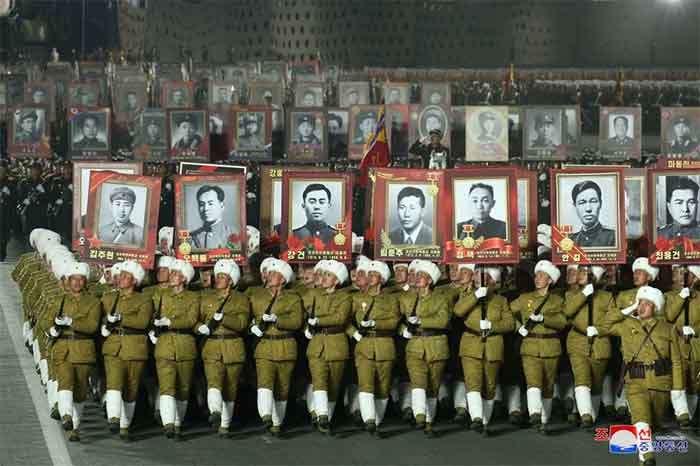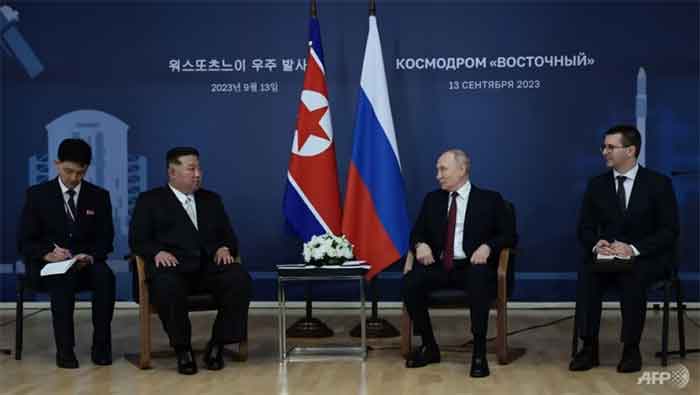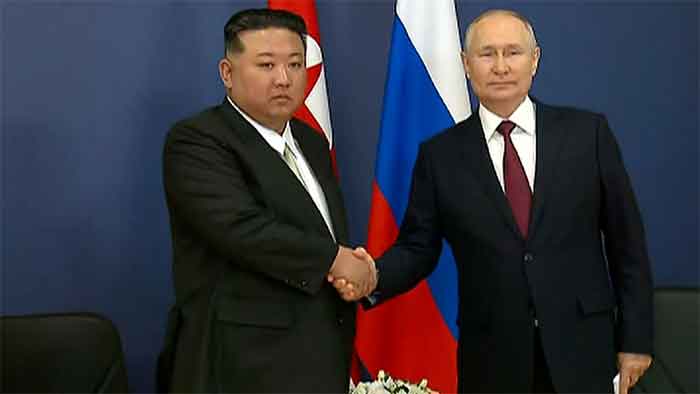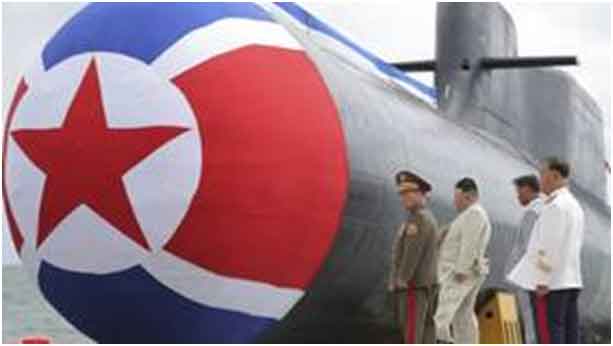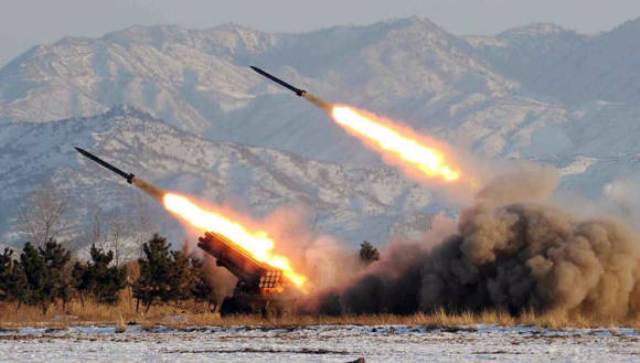
The developments in Far East since few days are quite complex. Three major developments have taken place. First US and South Korea have been involved in the joint annual drill which North Korea has criticized saying that it is in fact an invasion drill with a clear aim to destroy the country. Second development is launch of the submarine missile by North Korea which breached Japan’s air defense identification zone; alarming the region that North Korea is not ready to stop its misadventures. The North Korean stand is clear that as long the US maintains the military relations with South Korea it will not stop its nuclear and military programme. North Korea insists that US should not be associated in close manner as it has presence of large military personnel in South Korea.
These two developments are recurring phenomenon in the region, hence carry only little weight but still express the geopolitical conditions in the region; that North Korea- South Korea conflict is in the form of a cold war and which can be converted into a real war anytime, USA as its adopted policy particularly after the second world war and mainly after the dissolution of the USSR in 1991 that it should intervene the global affairs due to its leadership of the world are easily observed.
In this way the Korean peninsula has not moved out of the phase of real conflict which both countries had experienced during the Korean peninsula war. Thus the present exhibition of the show of the strength by North and South Korea are extension of the post world war conflict. Hence the present Korean conflict is not new but only more lethal due to North Korean success in developing the capacities for the nuclear weapons. According to US think Tank North Korea has as many as 21 nuclear bombs. IAEA data also show that it has capacity to develop such lethal bombs.
The nuclear war in the Korean peninsula is therefore likely to be of nuclear nature because North Korea has succeeded in developing deterrence with its adversary and its breakup may lead to disaster in the region.
The third but the most impactful development was the organization of the eighth Trilateral Meeting in which China, Japan and South Korea participated. On August 24, Foreign Ministers’ Meeting was held in Tokyo. Mr. Wan Yi, Foreign Minister of China, and Mr. Yun Byung-se, Minister of Foreign Affairs of ROK, and Japanese Foreign Minister Fumio Kishida deliberated on the regional and global issue. The annual meet was first organized in 2007 in South Korea, since then it has provided a workable platform to these the most influential countries to come at a place to deliberate on the issues of the common concern. The area is tense and the platform has therefore received much attention. The major outcome of this meet is that three powers of the region have come to criticise the North Korea’s latest submarine missile testing. The unison voice that peninsula should not be disturbed by such provocations show that there is significant shift in the Chinese policy towards the peninsula. There are two major factors behind such development:
First China finds a little difficult to control the nuclear ambitions of North Korea. It appears that China think that North Korea though dependent upon it in several ways pursues an independent foreign policy on some issues. The issue of enhancing its national power is such an example which was though initiated by China but now China is under stress because the nuclear power capacity place North Korea in a deterrent condition against itself which will is a big loss and threat to China because except Russia no other country in its neighborhood in East Asia possess such capabilities; the pacifist approach of Japan on such issues is for its advantage. The incapacity of South Korea to have any real muscle power and its high dependence on US for its security place China on an advantageous condition in the region. The threat of North Korea is now becoming a reality for China itself which it cannot discount just as a smaller issue. It is quite likely that in real terms it may push the other nation states in the region to stop this monstrous game of the North Korea. China had realized it previously too.
China has realized this threat therefore it allies with USA to denuclearize the peninsula and wants that UN Security Council sanctions be implement earnestly which have denounced by North Korea which is of the view that preemptive nuclear strikes can be made by it. The North Korean threats were mainly against the USA and South Korea but now it envelopes the whole region. Russia due to such realities in March 2016 had stated that North Korean policy of preemptive nuclear attack will provide a legal ground to international community to attack the country on the basis of the UN charter. These speakings show that even North Korea’s allies are aware of the real threat emerging from the side of the unrestrained North Korea. Chinese understanding also seems to be in the league of other nation states in the region. This is a sort of policy failure of China because it was instrumental to help North Korea to develop lethal weapons, now it has been emerging a threat to itself.
Second factor relates to the issue of South China Sea where after the order of the International court, China after initial strong sayings is now in a process of toning down its rhetoric and is trying to deal in a more diplomatic way. Perhaps it has come to conclusion that diplomatic efforts should be initiated and the war like speaking be used later on if such efforts fail.
The trilateral meet show that there is now emergence of better understanding in the Chinese policy makers on the North Korea’ wild wishes. Hence the positive statements have come out. China needs to know that its policy towards strengthening Pakistan and North Korea will backfire on its interests in due course of time. The start is now quite visible.
Dr. Vivek Kumar Srivastava is Consultant CRIEPS, e [email protected]


